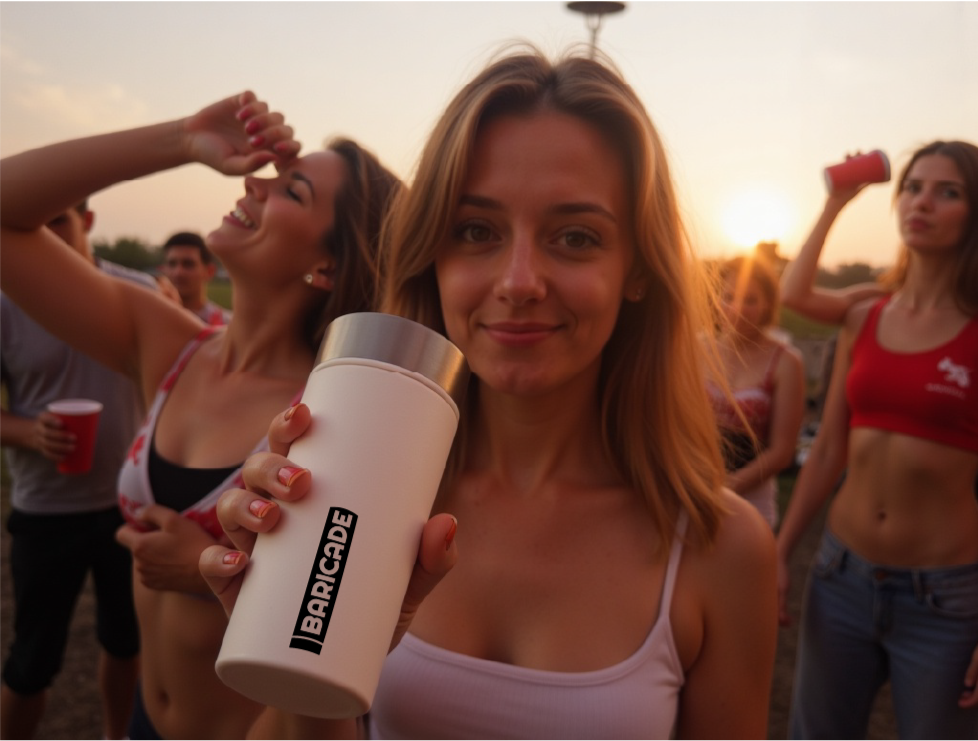

· By Tara Cauchi
Why You Need a Lockable Water Bottle to Keep Your Drink Safe
In a world where we secure our phones and homes, why don’t we think twice about securing our drinks? The idea that someone could tamper with your water bottle is unsettling, yet it happens more often than we realize.
We lock our phones to protect data, our homes to safeguard our belongings, and our cars to ensure no one drives off with them. And yet, our most intimate possession in a social setting—a drink—remains completely unprotected.
It’s an oversight that has had real consequences. According to a 2016 survey of over 6,000 students at three U.S. universities, approximately 7.8% reported having their drinks spiked, with 80% of these victims being female. The narratives often follow a chillingly familiar trajectory: a person sets down their drink for just a moment, unaware that an invisible hand has made an addition. What follows can be anything from a foggy memory to complete incapacitation.drugfree.org+1time.com+1
The problem is not theoretical; it is structural. Spiking a drink is shockingly easy, detection is difficult, and consequences are rare. In a society that still defaults to victim-blaming—questioning why someone left their drink unattended rather than why someone chose to violate it—the responsibility for safety unfairly falls on the individual.
Enter the lockable water bottle.
It’s an innovation that, at first, might seem excessive, even paranoid. Why should someone have to lock their own drink? Why not just stay hyper-vigilant, never let a cup leave their hands, and exist in a perpetual state of guardedness? Because that expectation is absurd. No one should have to hold onto their bottle like a lifeline just to stay safe.
A lockable water bottle isn’t just about security; it’s about autonomy. It allows you to move through spaces with the confidence that what’s yours remains yours. Whether you’re at the gym, on campus, at a concert, or simply in an office where you don’t entirely trust your colleagues (we’ve all been there), a locked bottle means that what you put in is exactly what stays in.
There’s a reason people have flocked to the Stanley Tumbler craze—it’s not just about hydration; it’s about ownership. A water bottle is an extension of the self, a daily essential that moves with you through your routines. But unlike a Stanley or a Hydro Flask, a lockable bottle doesn’t just make a statement; it makes a promise.
Some may argue that such a product shouldn’t need to exist, that the real problem isn’t unlocked bottles but the people who tamper with them. And they’re right. But until we live in a world where drink spiking is unthinkable, we need solutions that account for reality, not just ideology.
Safety shouldn’t be a privilege; it should be an expectation. And if that expectation isn’t met by society at large, we owe it to ourselves to create it in the spaces we can control.
A lockable water bottle isn’t a reaction—it’s a declaration. That what’s yours stays yours. That trust is something to be earned, not assumed. That security can be seamless, and vigilance doesn’t have to be exhausting.
And perhaps, in locking our drinks, we’re also unlocking something else entirely—a world in which safety is just a little less negotiable.
